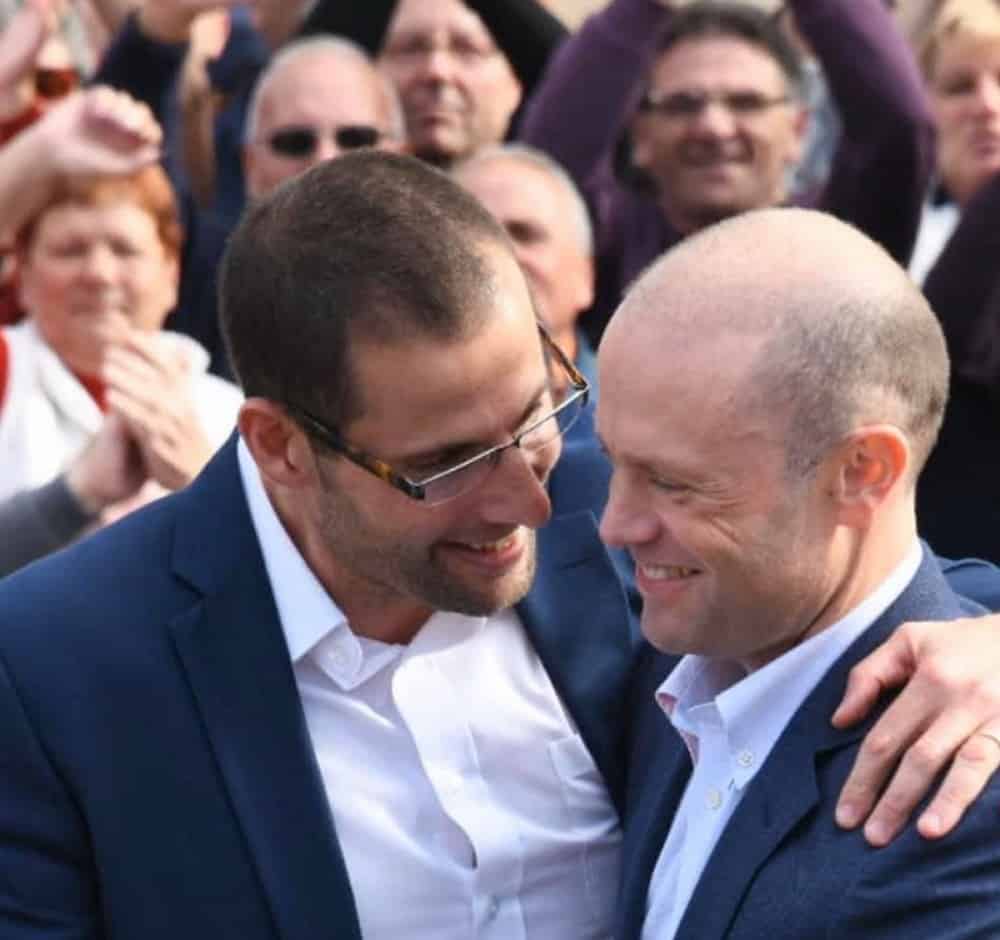
The fact that there’s disagreement within the Labour Party about the return of Joseph Muscat is the best thing I’ve heard about the Labour Party in a long time. I don’t mean that in the schadenfreude sense with which some politicians of the PN delighted in the news. Nationalists must feel some relief to be able to say they don’t have the monopoly on internal disagreements.
I mean it rather in the sense that if there is more than one opinion about anything in the Labour Party, then the Party is not quite so much a cult as it at first appears. They’re not all blindly following Joseph Muscat over the cliff like zombified lemmings. Some are. Many are. The question perhaps is whether most are.
Emanuel Cuschieri yesterday addressed his Lord Haw Haw diatribe from his car to the home front. The enemy, for a change, was not the PN, or Repubblika, or the Church, or some other external demon looking to possess his beloved Labour Party. The enemy was, rather, the Labour Party itself who, according to Cuschieri, looks like it might cave in to pressures yet unnamed businessmen exerted on Robert Abela to prevent Joseph Muscat from coming back to front line politics.
I don’t know if these businessmen exist. Cuschieri has, for the past 30 years of radio, been threatening to announce shocking scandals if some condition he imposes is not met. Nearly invariably the threat of future revelations never materialises. It’s just a rhetorical device to make his statements sound more ominous, a bit like a dwarf projecting a giant shadow on a wall to give an exaggerated impression of their size.
The unnamed, possibly inexistent businessmen, are, according to Cuschieri, looking to prevent Muscat from coming back to politics to protect their commercial interests. This, Cuschieri explains, because these businessmen hope to win more tenders and curry favour, which implicitly they would not be able to if Muscat returns.
Let’s unpack that. Cuschieri is effectively saying that some businessmen are drawing income from the government while Muscat is out of politics because Muscat is out of politics. The implication is that these tenders they’re winning, or they hope to win are somehow irregular, and Muscat’s return to politics would stop that.
Taken at face value this is truly stunning. Cuschieri is accusing the Labour government of corruption and of looking to avoid exposure with Muscat’s return to politics.
Now let’s look beyond the face value. If these businesspeople do exist and if Cuschieri is right about them risking losing contracts because of Muscat’s return, then that would be because Muscat has his own set of corrupt business cronies that would benefit from his return at the expense of those in the orbit of Abela. Cuschieri is in the orbit of Muscat. It shouldn’t be surprising that he prefers his boss’s corrupt cronies over the corrupt cronies of someone else.
Or if businesspeople are indeed putting pressure on the Labour Party to keep Muscat away but Cuschieri is wrong about their motivation, then perhaps someone is finally appreciating the cost to the country of having the reputation of a bay of pirates.
No one doubts Joseph Muscat is threatening to return to politics to bully the institutions into submission. He wants to avoid being arrested and charged with bribery and corruption in connection to the botched privatisation of the hospitals. A return to politics and the extent of the damage that would be inflicted on the Labour Party and the government should he be charged while holding a seat in the European Parliament would force allies to protect him. Muscat wants practical, if not legal, immunity. He is treating our democracy as his own fief. As far as he’s concerned this could be Nicaragua.
To spare Muscat the legal consequences of his actions, the entire country would have to pay a heavy economic price. We’d be harbouring a fugitive. We’d be cementing the atmosphere of impunity that the Daphne Caruana Galizia inquiry found Joseph Muscat had generated for his friends, except that this time the friends would be generating impunity for Muscat.
We’d be defying the repeated calls from the FATF, the European Commission, and several other institutions to get serious about corruption and money laundering.
We’d be signalling to criminals lesser than Muscat that if you have the right connections, you’ll get away with it. If he did, why not everybody else?
Some businesses are perfectly aware that Malta’s financial services industry would not survive a second bout of grey listing. Some businesses are perfectly aware that a return of Joseph Muscat to politics would amount to a mortal blow to the tattered reputation of this country in the rest of the world.
Yes, of course, as Cuschieri says, businesspeople will be primarily concerned with the risk to their wealth. The rest of us need to be concerned with the livelihoods of thousands in this country whose daily bread will be burned in the oven if we do not manage to shake off the reputational harm that Muscat’s prominence causes us.
Those business owners will be speaking to the government and the Labour Party. They’d be warning them of the high price the country would have to pay just so one man, one (alleged) thief who (allegedly) abused office when he was prime minister, continues to avoid facing consequences for his own actions.
If there’s someone in the Labour Party who is listening to that message, if anyone in there in between all the choral chants of “Joseph! Joseph!” can understand that no one except for Joseph Muscat is better off if Muscat comes back to politics, then perhaps things are not as bad as we might have thought.
Who am I kidding? Cuschieri will see to it that the throat of common sense is slit open.